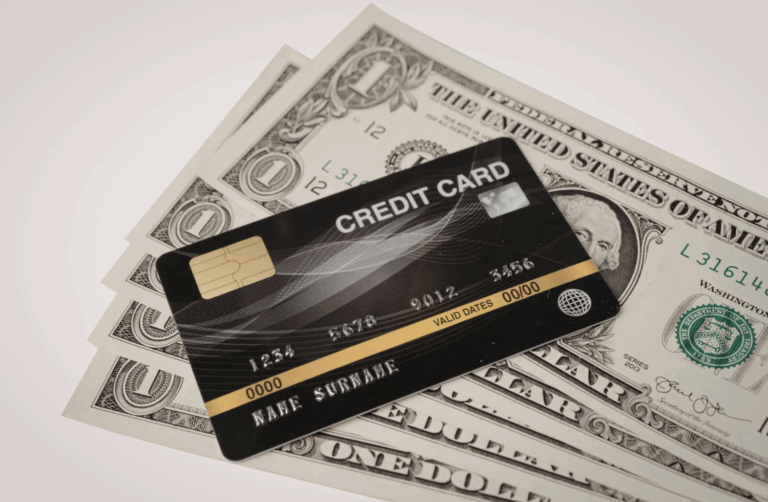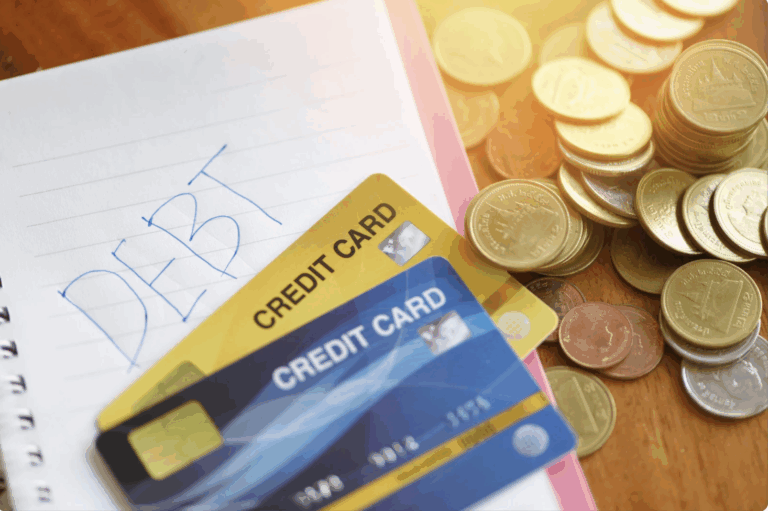Are you having difficulty making ends meet with your credit card payments? You’re not alone. Many folks experience the same problem. Managing ballooning balances and the fear of debt collectors can be daunting.
But don’t worry — options are available to help you get back on track with your credit card debt.
Read on to learn more about the consequences of missing credit card payments. You can also learn how to get your finances back in order.
What Happens When You Stop Paying Your Credit Cards?
Neglecting to make minimum payments on your credit card balance by the due date can cause you to incur penalties. These penalties may include additional fees, such as late fees, interest charges, and higher interest rates from the credit card issuer. Additionally, these penalties will ultimately increase the total debt amount. In other words, the longer your debt goes unpaid, the harder it is to get a handle on it.
Credit card nonpayment can also have a detrimental effect on your credit rating. A poor credit score can make it more difficult to borrow money in the future. It can also make renting an apartment, opening new utility accounts, and even getting certain jobs harder.
The consequences become more serious the longer your debt goes unpaid. Your credit card company will eventually send your past due account to an internal collections department or a debt collection attorney. Alternatively, it may be sold to a third-party debt collection agency. They will contact you repeatedly to get you to pay what you owe.
Ultimately, debt collectors may take legal action against you. If you lose a debt collection lawsuit, you could face court-ordered collection efforts such as wage garnishment or frozen bank accounts.
In summary, neglecting to fulfill your credit card obligations can have many negative repercussions. The good news is that there are options available to help you control and diminish debt without having to stop paying at all.
Key Takeaway: Neglecting to pay credit card bills can bring about grave repercussions, including additional fees, penalty interest rates, and the possibility of being pursued by the credit card issuer or debt collectors.
Understand Your Rights
As a borrower, you must know your legal rights regarding credit card payments and debt collection.
The Fair Debt Collection Practices Act (FDCPA) provides certain protections for consumers facing action from creditors or debt collectors. For example, any letters a debt collector sends must include information about the debt. This includes how much you owe, who you owe, and how you can dispute any claims against you within 30 days of receipt of the letter. Debt collectors are also prohibited from using any menacing tactics or intimidation when attempting to collect on a debt.
It’s also important to understand your rights regarding a debt lawsuit. You should respond promptly to any lawsuit from the credit card company or debt collector. Otherwise, a default judgment may be entered against you without a chance for defense. Usually, you have 20-30 days to respond. To ensure the best outcome based on your specific situation and any local laws governing collections practices, it’s a good idea to consult an attorney who is well-versed in consumer protection regulations.
Key Takeaway: It’s important to understand your rights and responsibilities when it comes to debt collection and lawsuits. Don’t ignore communications from creditors and collectors, and always respond to lawsuits within the legal time frame, as failing to do so may have dire consequences. It’s also important to seek the counsel of an experienced debt relief attorney on how best to safeguard yourself.
Consider Alternatives
Facing a large amount of credit card debt can feel hopeless. But there are ways to resolve your debt that don’t involve ignoring the problem and letting it pile up further.
Debt Consolidation
Debt consolidation is a strategy to combine multiple debts into a single loan or payment, typically with a lower interest rate than the original debts. In the case of credit card debt, a person can use a debt consolidation loan to pay off all of their credit card balances and then make one monthly payment to the loan provider.
Debt consolidation loans require collateral, such as a home or car title. You could lose this collateral if you default on the loan. You also need fairly good credit to qualify for a loan at an affordable rate. So, debt consolidation may not be an option if you’ve missed many card payments and your credit has suffered.
Debt Settlement
Debt settlement involves negotiating a lower balance with creditors, often with the help of a debt relief attorney. It is for those who are struggling to keep up with payments and unable to pay off their debts in full.
The debt settlement process usually involves a third-party negotiator, such as a debt settlement attorney, who works on the debtor’s behalf to negotiate a new balance and payment plan with the creditor. Typically, debt settlement negotiates a new payment plan on a reduced balance or a lump-sum payment. The debtor can pay this reduced amount to settle the debt.
While debt settlement can be a way to reduce debt and avoid bankruptcy, it can also have negative consequences. Settling a debt for less than the full amount owed is usually reported to credit bureaus and noted on your credit report and may harm your score. Of course, the string of missed payments leading up to the settlement will have already caused major damage to your score and a high debt-to-income ratio. You may also have to pay taxes on the forgiven portion of the debt. In general, though, getting a large portion of debt wiped away is often worth these drawbacks, as the savings may outweigh the potential downsides to the process.
Before pursuing either of these options, be aware of potential scams related to debt relief services. Research debt settlement companies before signing any agreements. This can help you avoid unscrupulous companies that large upfront fees and offer empty promises.
Key Takeaway: If you’re struggling to repay credit cards, options are available to resolve your debt. Two popular options are debt consolidation and debt settlement. However, you should beware of debt relief scams and work with a reputable attorney.
Seek Professional Help
If you cannot pay off your credit card debt alone, it is important to seek professional help. So consider working with a debt relief attorney who understands how to tackle credit card and other debt. An experienced professional guide can explore all avenues to quickly get you out of debt without putting yourself at greater financial risk.
Additionally, with their expertise comes objectivity—which most people lack when facing overwhelming personal finance issues like these.
Some of the services an attorney can provide include:
- Legal representation: If you are facing a lawsuit or other legal action related to your debt, a debt relief attorney can provide legal representation and help you defend yourself against the credit card company’s claims.
- Debt settlement negotiations: A debt relief attorney can also negotiate with your creditors to settle your debts for less than what you owe.
- Debt consolidation: A debt relief attorney can help you explore options for debt consolidation, which can help you combine your debts into a single payment with a lower interest rate.
- Credit counseling: A debt relief attorney can refer you to nonprofit credit counseling services, which can help you develop a debt repayment plan and provide education and resources to help you manage your finances.
- Bankruptcy: If necessary, a debt relief attorney can help you file for bankruptcy and guide you through the process. Bankruptcy can provide relief from debt and protect you from collection actions, such as wage garnishments and creditor harassment.
Overall, a debt relief attorney can provide legal advice and representation to help you deal with your debt problems and develop a strategy to manage or resolve your debts. It’s important to consult with a qualified attorney with experience with debt relief and consumer protection laws to ensure your rights are protected and you receive the best possible outcome.
Key Takeaway: A debt relief attorney can help you manage your credit card debt, negotiate with creditors, and create strategies for reducing your overall debt burden.
FAQ
Contact Tayne Law Group Today
If you’re struggling with credit card payments, Tayne Law Group, P.C. may be able to provide legal advice and solutions to help get your finances back on track. Contact us today for a free, no-obligation phone consultation about our services and how we may be able to help resolve your credit card debt. Call us toll-free at (866) 890-7337 or fill out our short contact form, and we’ll get in touch! We never sell or disclose client information. All calls between you and our team remain confidential.
If you stop paying your credit cards, the debt will eventually be sent to collections. You’ll begin receiving calls and letters from debt collectors demanding payment. Unpaid credit cards may lead to a creditor or collection agency lawsuit. Late payments can damage credit scores for years, even after full payment.
A debt that remains unpaid for seven years is usually removed from a credit report. Debt removal from the credit report after seven years doesn’t mean the debt is forgiven or you no longer owe it. The creditor or debt collector may still attempt to collect the debt through phone calls, letters, or legal action.
The short answer: Yes. Depending on the situation, creditors may take legal action to recover unpaid debts. Missed payments lead to negative marks on credit reports that can limit future borrowing. In other words, not paying your credit card bills can result in financial and legal challenges.





